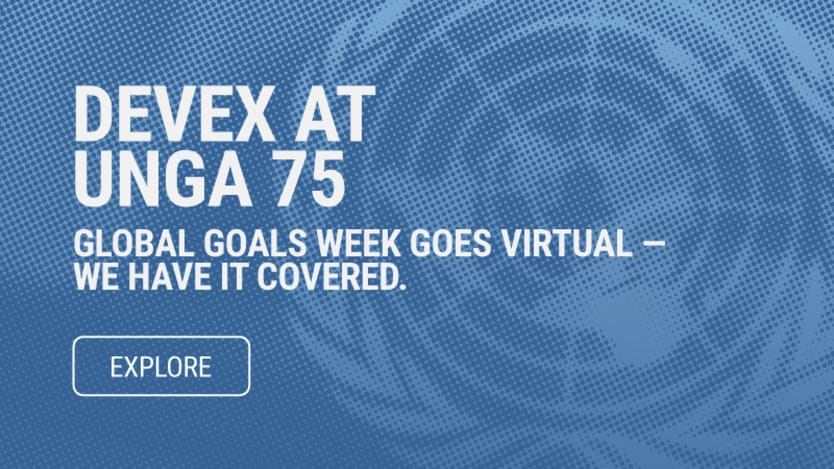BURLINGTON, Vt. — United Nations peacekeeping operations are in a “better position” today than they were a couple of years ago when it comes to preventing and responding to incidents of sexual abuse and exploitation, according to Jean-Pierre Lacroix, U.N. undersecretary-general for peace operations.
Devex spoke to the head of U.N. peacekeeping during the General Assembly. In addition to updates on the department’s efforts to stamp out abuse, Lacroix described the consequences of budget shortfalls and the impact of COVID-19 on peacekeeping operations, and he shared his expectations for how peacekeeping missions will evolve in the future.
“We need to be pragmatic. … We need to think of what works best and not think in terms of cookie-cutter approach to a particular situation.”
— Jean-Pierre Lacroix, undersecretary-general for peace operations, United NationsWhen it comes to abuse and exploitation, “the zero tolerance policy is an absolute demand and expectation,” Lacroix told Devex.
He noted that the number of allegations has declined and the cases that are raised have skewed toward older incidents, suggesting that more people are coming forward with information about past abuses.
“We're seeing a much faster reactivity from us and from member states whenever there is an allegation. It takes only a few days now for investigations to begin, and it used to be ... almost six months in just a couple of years ago,” Lacroix said.
The establishment of victims’ rights advocates within the largest U.N. peacekeeping missions in 2017 has helped the international body better support victims and ensure accountability, he added, while noting, “I don't believe that we are out of the wood.”
Lacroix said his department still has room for improvement when it comes to ensuring that “all allegations are brought to the knowledge of the leadership of the mission and then expeditiously dealt with.” He said there is still work to be done to hold offenders accountable, in partnership with countries that contribute troops and police.
“There has to be appropriate legislation so that sanctions can be inflicted on those responsible,” Lacroix said, adding that there is also more to be done to effectively process paternity cases.
Peacekeeping operations continue to face challenges in adequately training and equipping peacekeeping personnel, and that is a resource challenge, Lacroix said.
How is COVID-19 affecting progress on the SDGs? Will online meetings mean greater international representation? Our reporters are covering the all-virtual 75th United Nations General Assembly to find out.
As one of the U.N.’s largest cost centers, peacekeeping operations have come under significant budget pressure. President Donald Trump’s administration has reduced the U.S. government’s contribution from 28.5% to 25% of the overall peacekeeping budget, and chronic delays in delivering assessed contributions have led to budget shortfalls, which Lacroix said fall hardest on countries that contribute peacekeeping forces.
“It's very frustrating to see that because of the lack of full payment and payment in due time of assessed contributions, many troop- and police-contributing countries are seeing delays in the reimbursement that we owe them,” he said.
“I think this is very unfair. This is particularly unfair to those troop- and police-contributing countries from the global south and especially to those with a weaker economy,” he added.
Lacroix predicted that two relatively recent evolutions in the peacekeeping model will be here to stay. The first is that U.N. peacekeeping operations will increasingly work with other partners in their field operations and in their political efforts related to supporting peaceful transitions.
The second lasting trend will be the increasing diversification of the type of peace operations the U.N. deploys, he said. Peacekeeping operations might be smaller or larger, with broad or narrow mandates.
“I think we need to be pragmatic. I believe that we need to think of what works best and not think in terms of cookie-cutter approach to a particular situation,” Lacroix said.









